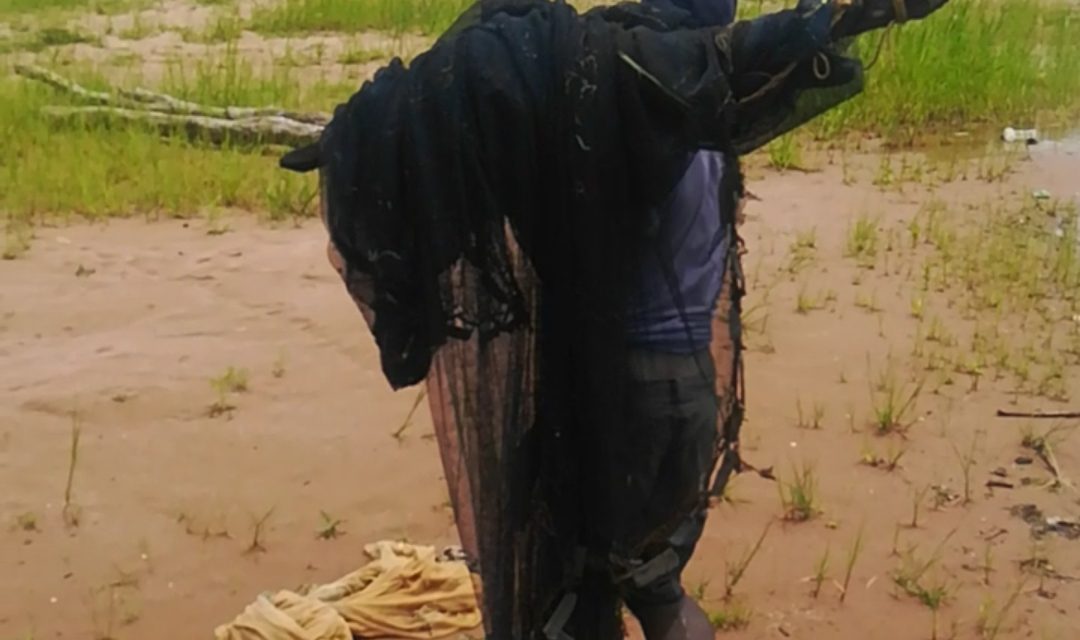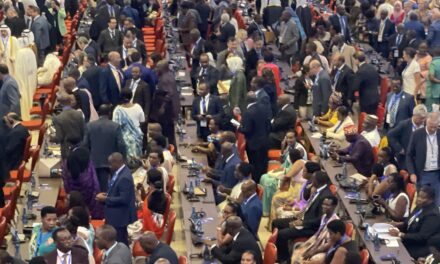Bongase Nsoano, a small remote community nestled in the Banda district of the Bono region in Ghana, is grappling with the adverse effects of climate change. With a population of fewer than 200 people, this tight-knit community relies heavily on the twin livelihoods of fishing and groundnut farming. However, their way of life has been severely impacted due to the changing climate patterns.
During AritaGlobe Foundation’s recent visit to the community, it was realised that one of the most pressing challenges faced by the community of Bongase Nsoano is the unpredictable and unprecedented rainfall. Torrential downpours have caused the local lake to overflow its banks, resulting in extensive flooding of the nearby groundnut farms. This not only destroys crops but also impedes agricultural activities, leading to significant economic losses. The once fertile farmlands have become saturated, rendering them almost unproductive and exacerbating the villagers’ struggle for sustenance.
The fishing industry, which forms the backbone of the community, has also suffered the consequences of climate change. The excessive rainfall has caused the water levels in the lake to fluctuate dramatically. At times, the water level recedes, making it increasingly challenging for fishermen to have substantial fish harvests. As a result, the fishermen of Bongase Nsoano are facing dwindling catches, which directly impacts their income and livelihoods.
The diminishing fish harvests and damaged groundnut crops have created a dire situation for the residents of Bongase Nsoano. The community, already facing limited access to basic amenities, is now grappling with economic vulnerability. The lack of alternative livelihood options exacerbates the hardships faced by the villagers.
Recognizing the gravity of the situation, community leaders and the town folks have been working hand in hand to mitigate the effects of climate change. They have embraced various adaptation strategies, including introducing climate-resilient farming techniques and exploring alternative income-generating activities. These efforts are aimed at bolstering the community’s resilience and reducing their vulnerability to the unpredictable climate patterns.
However, the challenges faced by the community of Bongase Nsoano cannot be resolved solely at the local level. Advocacy for increased support, both financial and technological, from governmental and non-governmental organizations is crucial in tackling the long-term effects of climate change on this remote community. Specifically, investments in climate-resilient infrastructure, and access to market opportunities can empower the villagers to build sustainable livelihoods and adapt to the rapidly changing environment.
As Bongase Nsoano and other communities in Ghana grapple with the repercussions of climate change, it is imperative for global attention to be drawn to these vulnerable populations. The plight of this small community serves as a reminder that climate change impacts are not confined to large cities or developed nations but are also felt in remote pockets of the world particularly those in Africa.
In the face of these challenges, the indomitable spirit of the people of Bongase Nsoano persists. They continue to rely on their collective strength, resilience, and determination to weather this climate crisis. Their unwavering hope for a sustainable future serves as an inspiration to all, urging us to take collective action and prioritize climate change mitigation and adaptation efforts for the sake of our shared planet and its vulnerable communities.
Author: Charles Akrofi, Communication Director, AritaGlobe Foundation






A masterpiece. Kudos bro for sharing this news. Only if the government or the NGO’s could come to their aid, it will help better their lives at least.